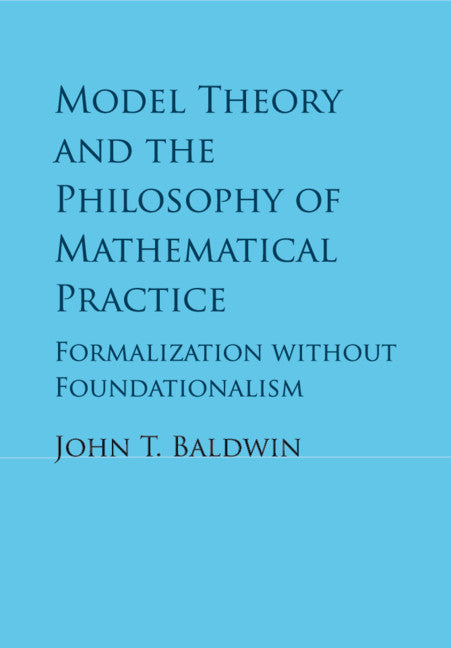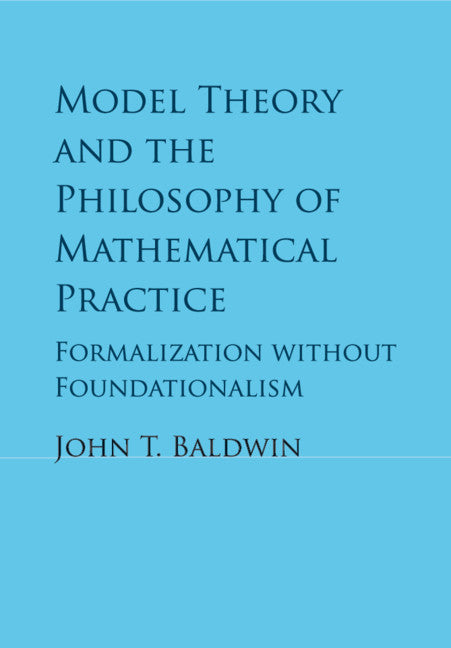Freshly Printed - allow 8 days lead
Couldn't load pickup availability
Model Theory and the Philosophy of Mathematical Practice
Formalization without Foundationalism
Recounts the modern transformation of model theory and its effects on the philosophy of mathematics and mathematical practice.
John T. Baldwin (Author)
9781316638835, Cambridge University Press
Paperback / softback, published 9 January 2020
364 pages, 8 b/w illus.
24.3 x 16.9 x 1.7 cm, 0.6 kg
'The book under review has a lot to offer at many levels. First of all, it may serve as a guide to recent advances in pure and applied model theory. Such a guide may be useful not only to novices, but also to old hands. Secondly, Baldwin summarizes several trends in contemporary philosophy of mathematics, and his insights should be of interest to philosophers as well as to mathematicians.' Roman Kossak, The Mathematical Intelligencer
Major shifts in the field of model theory in the twentieth century have seen the development of new tools, methods, and motivations for mathematicians and philosophers. In this book, John T. Baldwin places the revolution in its historical context from the ancient Greeks to the last century, argues for local rather than global foundations for mathematics, and provides philosophical viewpoints on the importance of modern model theory for both understanding and undertaking mathematical practice. The volume also addresses the impact of model theory on contemporary algebraic geometry, number theory, combinatorics, and differential equations. This comprehensive and detailed book will interest logicians and mathematicians as well as those working on the history and philosophy of mathematics.
Part I. Refining the Notion of Categoricity: 1. Formalization
2. The context of formalization
3. Categoricity
Part II. The Paradigm Shift: 4. What was model theory about?
5. What is contemporary model theory about?
6. Isolating tame mathematics
7. Infinitary logic
8. Model theory and set theory
Part III. Geometry: 9. Axiomatization of geometry
10. ?, area, and circumference of circles
11. Complete: the word for all seasons
Part IV. Methodology: 12. Formalization and purity in geometry
13. On the nature of definition: model theory
14. Formalism-freeness
15. Summation.
Subject Areas: History of science [PDX], History of mathematics [PBX], Philosophy of mathematics [PBB], History of Western philosophy [HPC]


